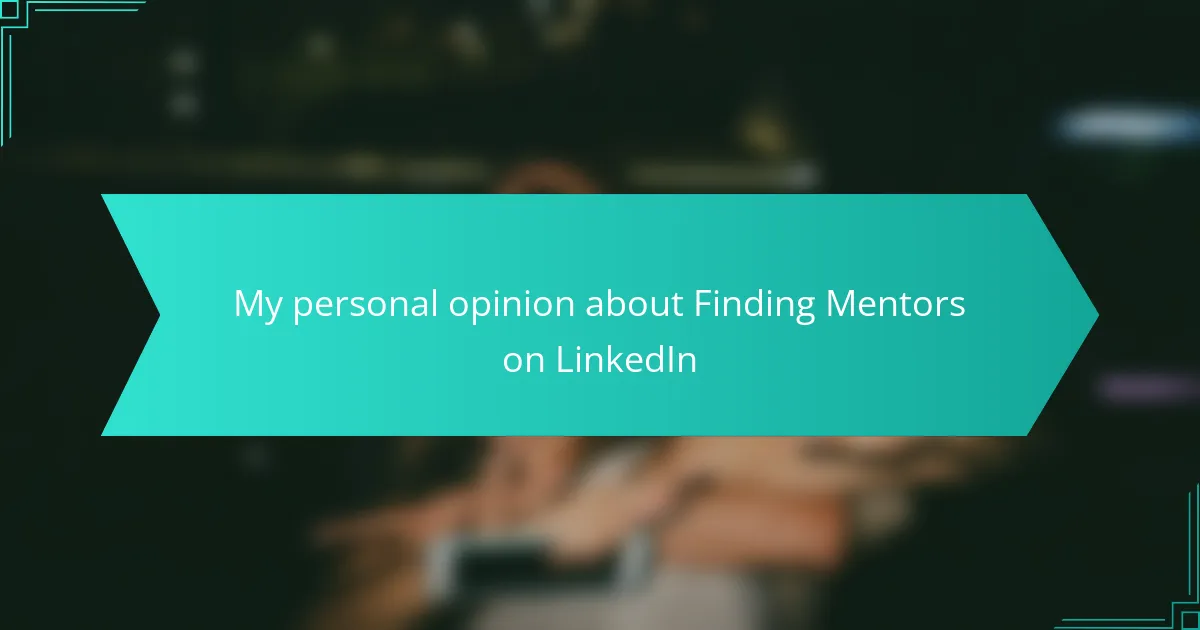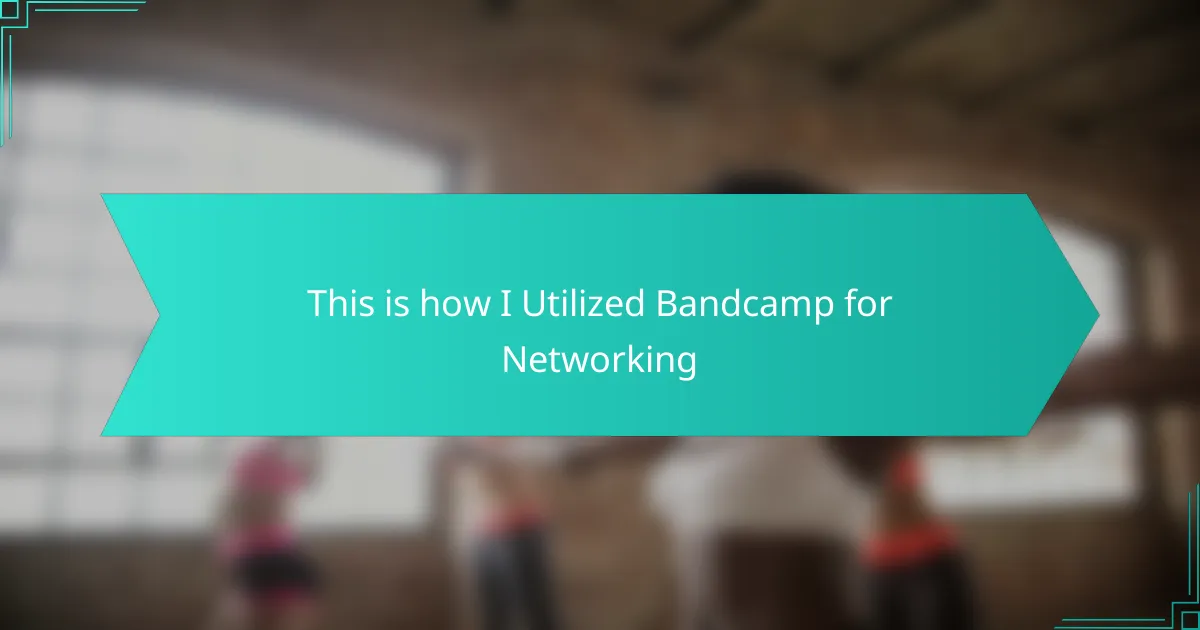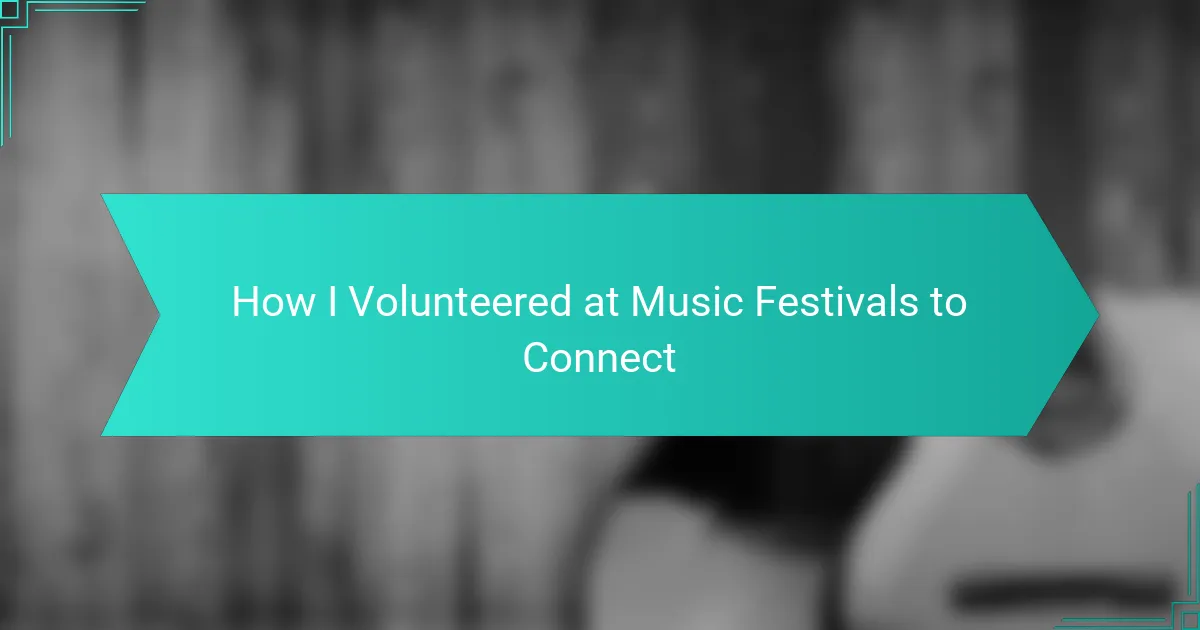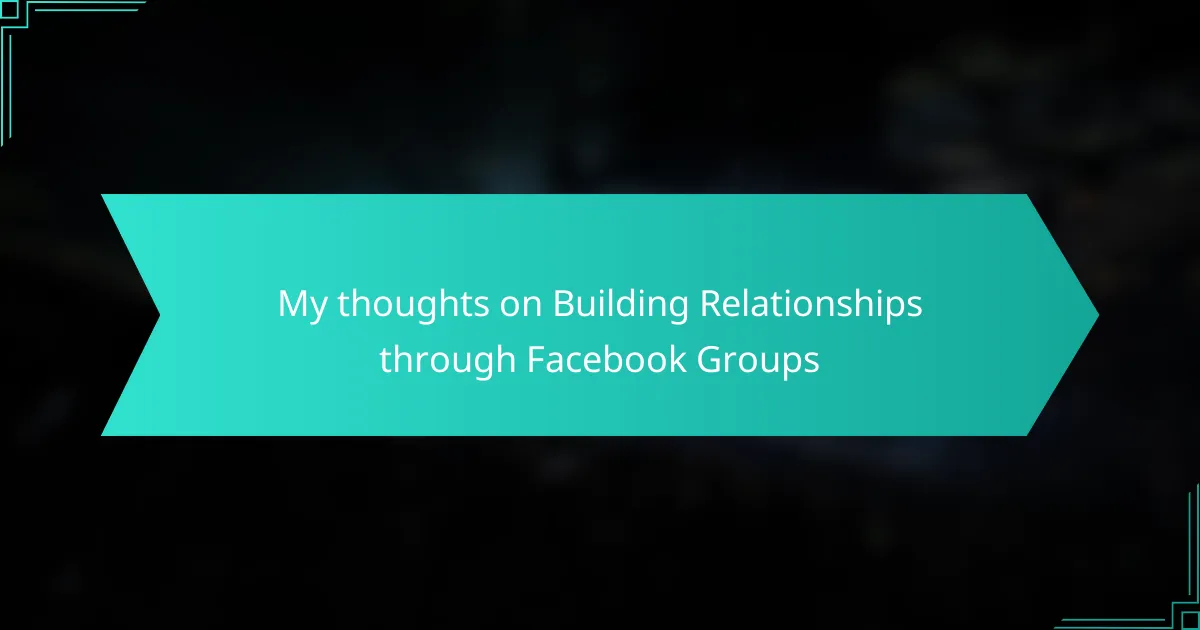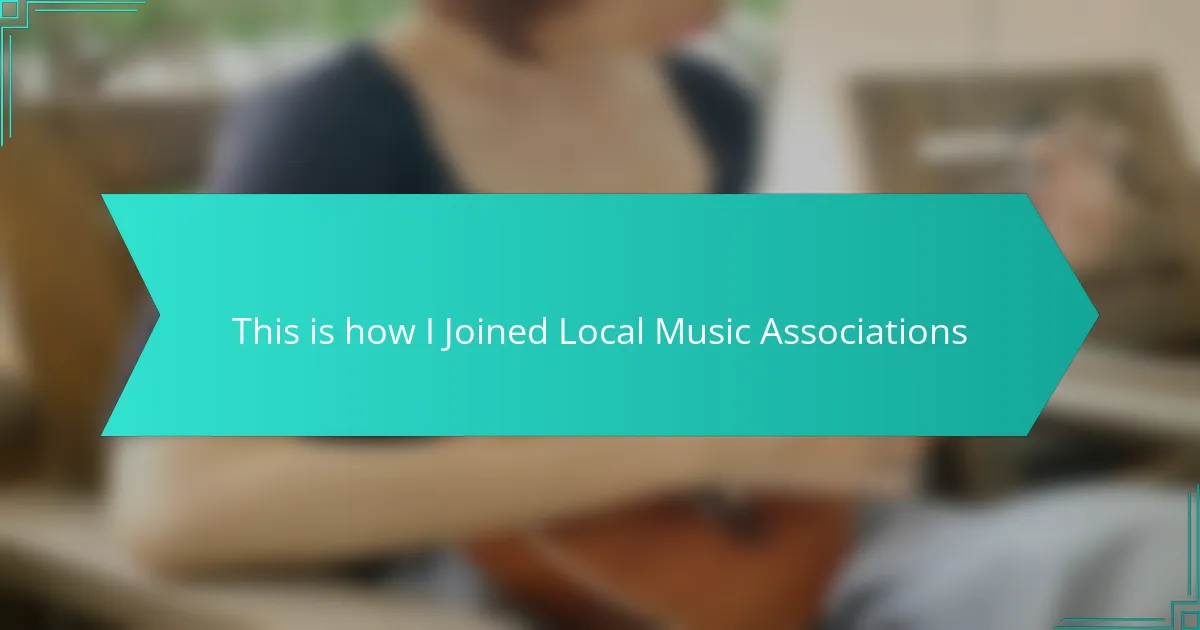Key takeaways
- Mentors provide personalized guidance and valuable industry connections, significantly accelerating growth and reducing the learning curve.
- LinkedIn serves as an effective platform for musicians to network, showcase their work, and find potential mentors.
- Building a mentor-mentee relationship requires active engagement, clear communication about goals, and expressing gratitude for support received.
- Evaluating potential mentors involves assessing their experience, responsiveness, values, and the diversity of their skills.
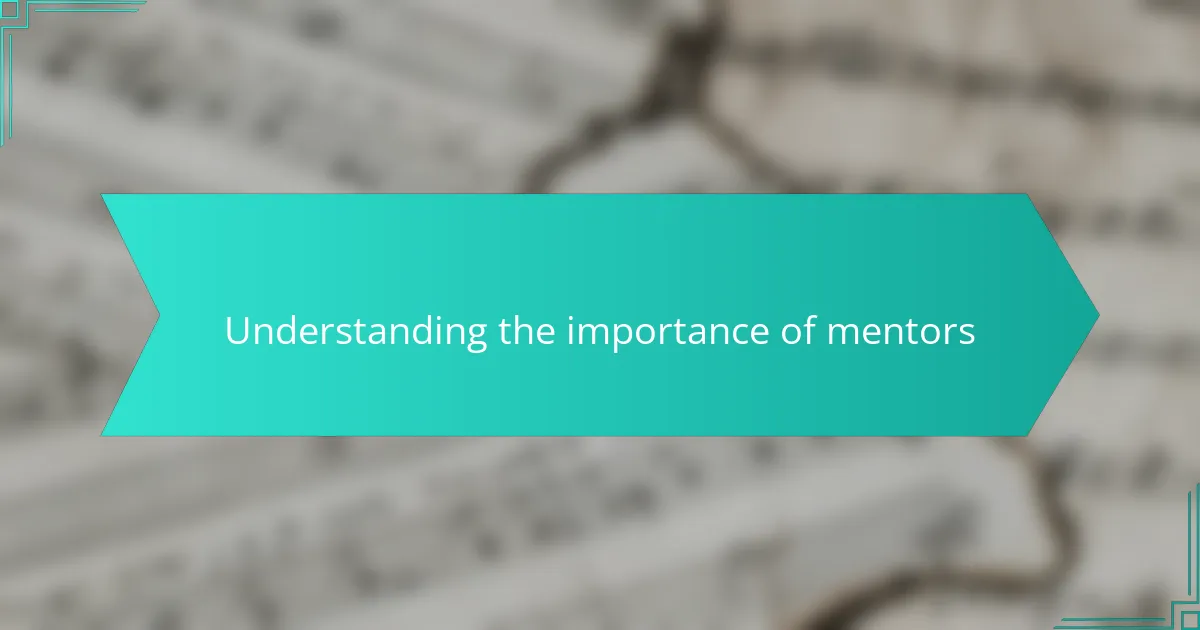
Understanding the importance of mentors
Understanding the importance of mentors
Mentors can be game-changers in a musician’s career. They offer guidance, share valuable connections, and provide insights that can help you navigate the complexities of the music industry. Personally, I’ve experienced the impact a mentor can have; their encouragement has propelled me to take chances I might have otherwise avoided.
Moreover, having someone who has traveled the path before you can significantly reduce the learning curve. I remember reaching out to a seasoned musician on LinkedIn, and their willingness to share their experiences not only boosted my confidence but also helped me see potential pitfalls before they became issues.
Here’s a comparison of having a mentor versus going it alone:
| Aspect | With a Mentor |
|---|---|
| Guidance | Personalized advice based on experience |
| Network | Access to valuable industry connections |
| Learning Curve | Faster growth through shared knowledge |
| Emotional Support | Encouragement during challenges |
| Investment | Time and effort for mutual benefit |
| Independence | Trial and error without external help |
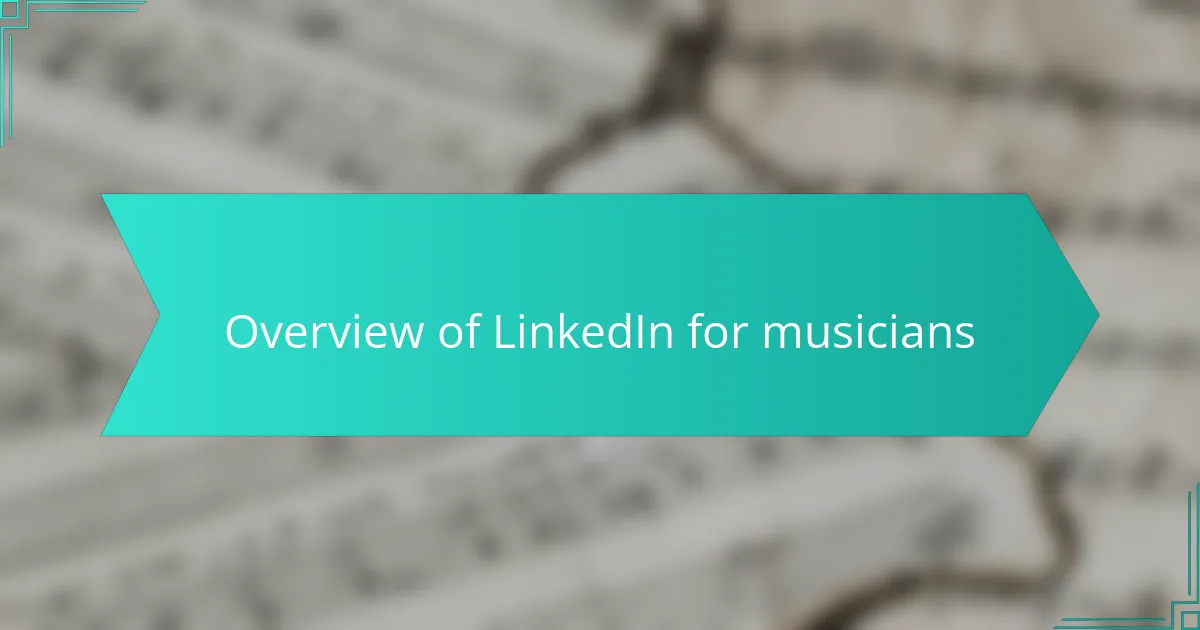
Overview of LinkedIn for musicians
LinkedIn has become an invaluable resource for musicians looking to advance their careers. It’s not just a platform for job hunting; it’s a space for networking, showcasing your talents, and connecting with industry professionals. Personally, I found my first mentor through LinkedIn, which opened doors I never knew existed.
The ability to highlight your achievements and share your music through posts and updates creates opportunities to engage with like-minded individuals. I’ve experienced firsthand how a simple connection can lead to valuable advice and collaborations. It’s a unique platform that bridges the gap between artistry and professionalism in music.
| Aspect | |
|---|---|
| Target Audience | Professionals, including musicians |
| Networking Opportunities | Connect with industry leaders, mentors, and peers |
| Profile Features | Showcase skills, experience, and projects |
| Collaboration Potential | Find potential collaborators and gigs |
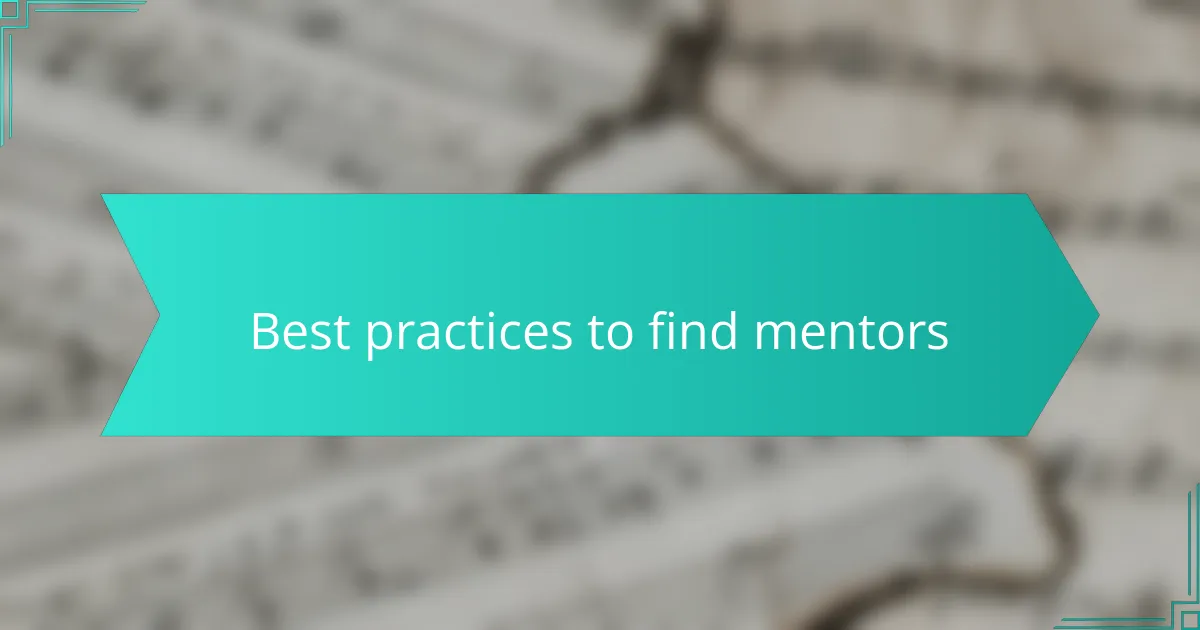
Best practices to find mentors
When it comes to finding mentors on LinkedIn, I’ve learned a few best practices that really stand out. First, engaging with potential mentors by commenting on their posts or sharing their content is an effective way to get noticed. I once connected with a seasoned musician by expressing my appreciation for their work in a comment—they later reached out to me, leading to a fruitful mentorship.
Another important practice is to be specific about what you’re looking for. When I crafted my outreach message, I highlighted my goals and how I believed their expertise could guide me. This clarity can increase the likelihood of a positive response since potential mentors can see how they can make an impact.
Lastly, building a genuine relationship is crucial. I always send a follow-up message expressing my gratitude for any help received, which has fostered deeper connections. These personal touches can transform a simple LinkedIn interaction into a meaningful mentorship.
| Best Practice | Description |
|---|---|
| Engage Actively | Comment on posts to build visibility. |
| Be Specific | Clearly outline your goals and needs. |
| Build Relationships | Follow up and express gratitude for guidance. |
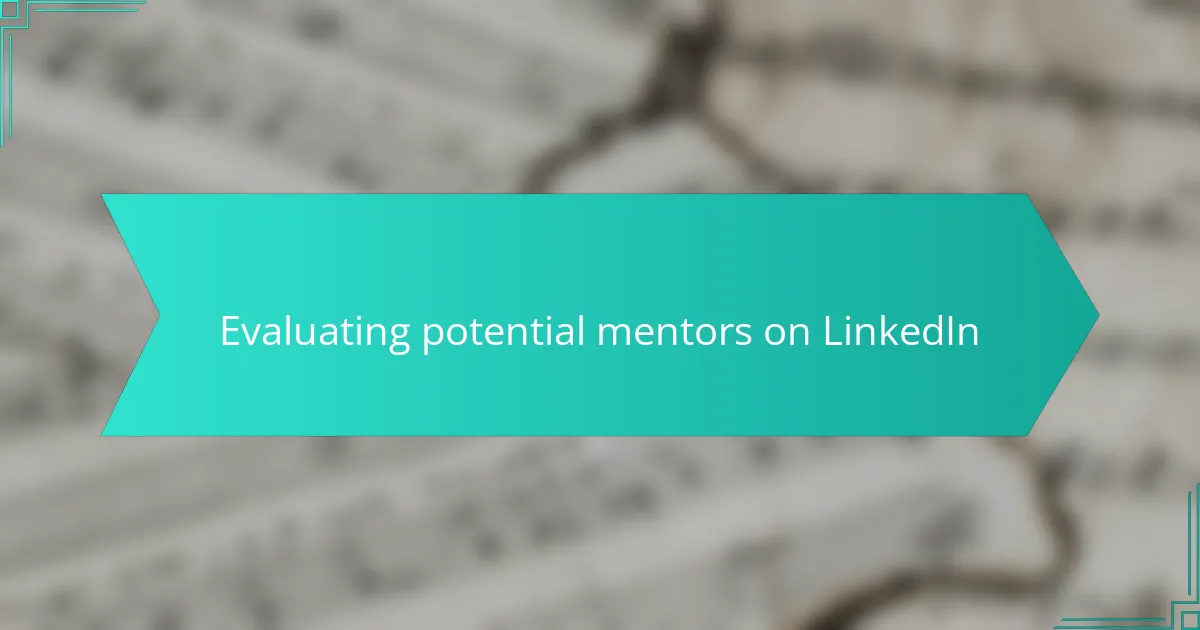
Evaluating potential mentors on LinkedIn
When I think about evaluating potential mentors on LinkedIn, I consider what qualities truly resonate with me. It’s not just about their experience or accolades; it’s about their willingness to share and nurture. I remember reaching out to a mentor who seemed busy, yet who took the time to answer my questions and provided warm encouragement. That kind of support made a difference in my journey.
To help you assess potential mentors effectively, here are some key points to consider:
- Experience: Look for individuals with a proven track record in the music industry.
- Engagement: Analyze their interaction on LinkedIn—are they responsive and open to connecting?
- Values: Ensure their values align with your own; this harmony can lead to a more meaningful relationship.
- Diversity of Skills: A mentor with varied expertise can offer a broader perspective.
- Reputation: Check their endorsements and recommendations to gauge how others perceive their mentorship style.
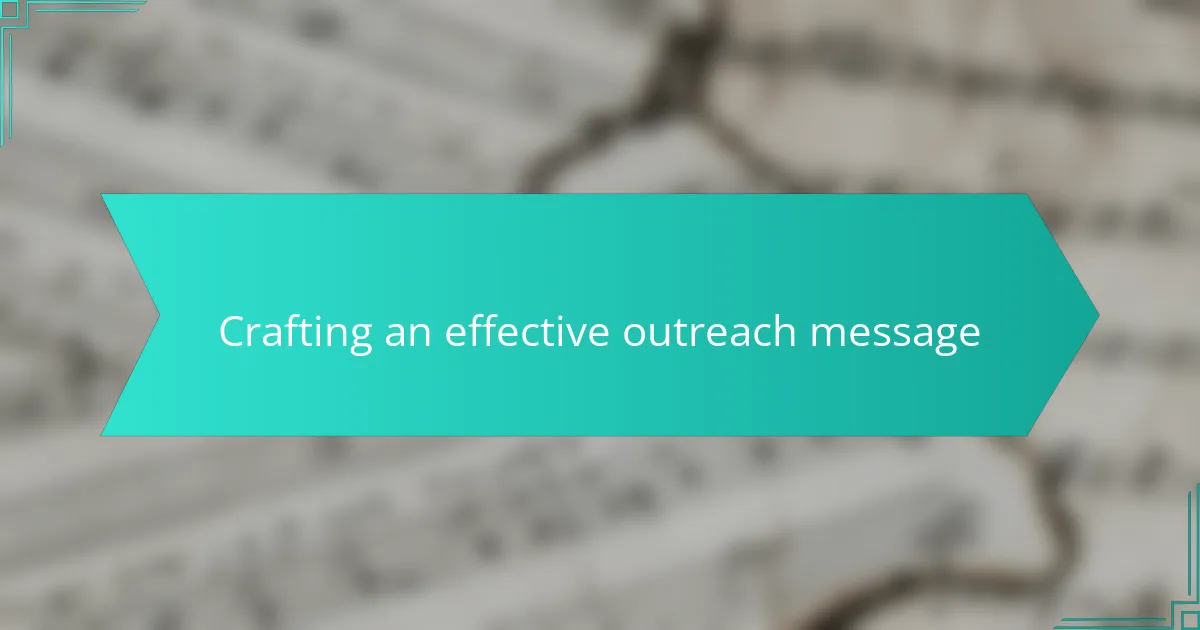
Crafting an effective outreach message
When reaching out to potential mentors on LinkedIn, it’s crucial to craft a message that is both authentic and specific. I remember my first outreach message; I was nervous but took the time to highlight why I admired their work. By mentioning specific aspects of their career, I expressed genuine interest and showed that I had done my homework.
To make your outreach effective, consider these key points:
– Be Personal: Start with a friendly greeting and mention any mutual connections or shared experiences.
– Show Interest: Refer to a specific project of theirs that inspired you.
– Be Clear and Concise: State your intention clearly—what you’re hoping for (advice, guidance, etc.).
– Respect Their Time: Acknowledge their busy schedule, and propose a brief chat or ask if they could share insights via a message.
– Follow Up Respectfully: If you don’t hear back, a polite follow-up can show your persistence and genuine interest.
By tailoring your message thoughtfully, you increase your chances of making that valuable connection.
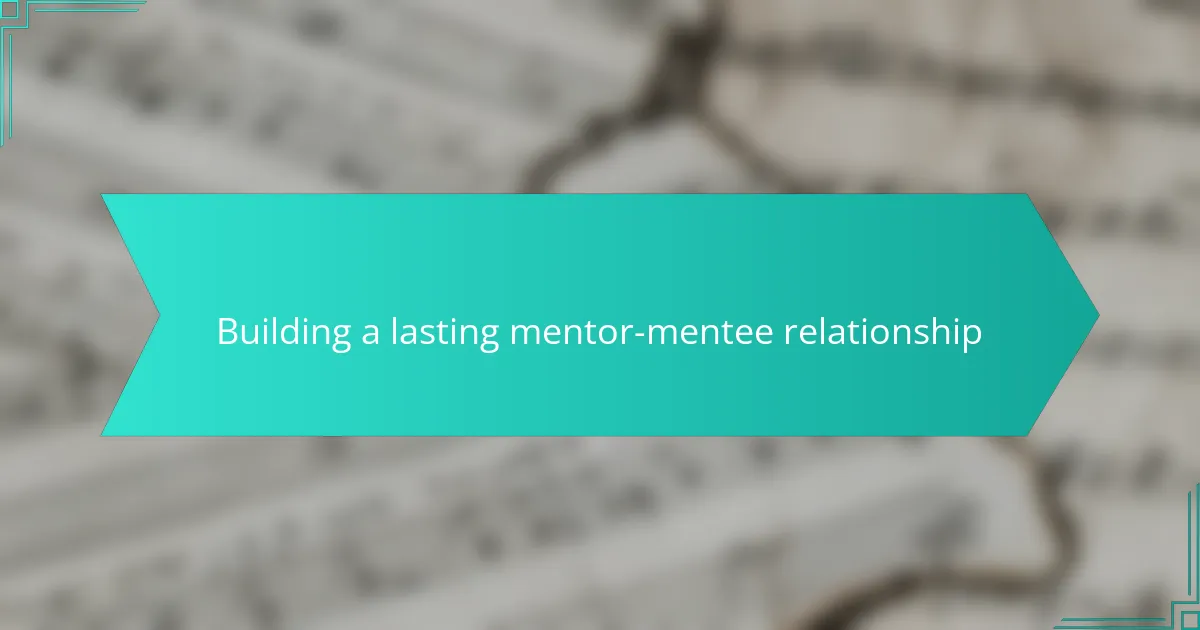
Building a lasting mentor-mentee relationship
Building a lasting mentor-mentee relationship takes time and commitment. I’ve had mentors who were incredibly generous with their time, and I learned the importance of reciprocating that time with gratitude. A simple thank-you message after a conversation or sharing the outcomes of their advice creates a loop of trust and affirms the value of their guidance.
Establishing mutual respect is another vital aspect. I recall a mentor who made me feel like my challenges were valid, and in turn, I felt encouraged to share my progress openly with them. This honesty fosters a deeper connection and allows for more meaningful discussions. When both sides are invested, the relationship thrives.
Regular check-ins can help maintain this bond. I often send messages to my mentors just to share updates or seek advice, which keeps the lines of communication open. It’s amazing how a quick note can reinforce a connection and ensure that both parties feel valued in the relationship. Have you considered how these small gestures could enhance your mentorship experience?
